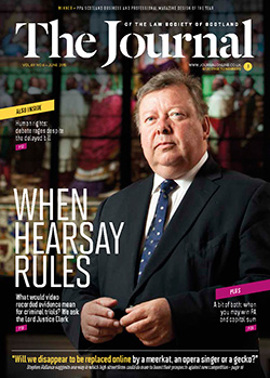Shareholder details: the right to refuse
Companies are required to keep an up-to-date register of shareholders, which includes details of the shareholders’ names, addresses and their shareholdings in the company. Companies must make the register available for inspection by any person (whether or not they are a shareholder), and provide copies of the register where requested.
However, companies might have very good reasons to be reluctant about disclosing their shareholders’ details. For example, it is not unknown for vexatious individuals (e.g. someone with a grudge against the company) to ask to see the register with a view to harassing or intimidating the company’s shareholders. A competitor of the company might want a copy of the register with a view to interfering with the company’s business.
So it’s worth knowing that no one has an automatic right to see a register of shareholders. There is a process for an individual to go through before they receive access, and in some cases the company may be able to resist an inspection request.
The Companies Act 2006 states that any request has to contain certain information, including the purpose for which the information will be used. If the information is going to be provided to someone else, details of that other person must be provided as well as how they’re going to use it.
Where a company receives such a request, it has five working days either to comply with it or to apply to court. If the matter goes to court, and the court is satisfied that the inspection is not sought for a proper purpose, it has to direct the company not to comply with the request.
However if the court is not satisfied, then failure by the company to comply with the request is an offence.
This is pretty serious stuff: the company doesn’t get long to decide whether it’s going to apply to court and, of course, if the court finds in favour of the person requesting, the company will have to pay its legal expenses. Some companies may be concerned about reputational issues if they are perceived to be secretive about their shareholders.
Purpose tested
It all boils down to: what is a “proper purpose”? Surprisingly, there have only been two reported cases on this since the Act came into force. In the first, Burry & Knight Ltd v Knight [2014] EWCA Civ 604, the court held that there was a general presumption in favour of shareholder access to a company’s register of shareholders. In that case, however, the shareholder wanted access for purposes which the court found to be improper (essentially to further a personal vendetta and to harass the other shareholders with unfounded allegations about directors’ misconduct). Access was denied.
In a more recent case, Burberry Group plc v Richard Charles Fox-Davies [2015] EWHC 222, it was a member of the public who wanted access. The individual ran a tracing agency which traced lost shareholders in public quoted companies. He was going to be disclosing the information about the shareholders to other entities who helped him in his tracing activities.
The court held that the request was invalid as it did not contain the names and addresses of those with whom the person was going to share the information, as required by the Act. Accordingly, the five day period for referral to court did not start running. This is a helpful finding as it clarifies that companies do not have to rush to court where a request is made that does not comply with the Act’s requirements.
In any case, the court also held that the request had been made for an improper purpose, namely to extract a commission or fee from a traced shareholder. The court referred to guidance issued by ICSA (the Institute of Chartered Secretaries & Administrators) on this topic. This indicated that there was no blanket ban on requests by tracing agencies, but that such a request would be for an improper purpose “where the company is not satisfied that such activity is in the interests of shareholders”. In this case, the company had its own tracing agency with more favourable terms. Also, there were various unknown issues with the requester’s agency (including the identity of any external agencies he used). The court found that, on the balance of probabilities, the request was not for a proper purpose.
The court highlights that, in contrast to a request made by a shareholder of the company, where a request is made by a member of the public, there is an emphasis on protection of the shareholders as a class.
In this issue
- Weighing the risks
- Private parking fines – are they enforceable?
- Scotland – home of (dangerous) golf
- Shareholder details: the right to refuse
- Perils of the owner-occupied croft (fuller version)
- Reading for pleasure
- Opinion: Thomas Ross
- Book reviews
- Profile
- President's column
- Land Register completion: one year in
- People on the move
- Rights: whose final say?
- The word on the street
- Screen test
- Making the best of mediation
- Keep up the payments
- The right priorities
- When reputation is not enough…
- Sports justice – being seen to be done?
- Source of disputes
- CML Handbook: the new deal
- Perils of the owner-occupied croft
- In-house and in-tune in the Commonwealth
- Stair Society seeks new blood
- New Build Standard Clauses revised
- Law reform roundup
- Leven's last hole rarely in benevolent mood
- Year of the new look
- AML just became simpler
- "My time is valuable!" Oh really?
- Learning opportunity
- Ask Ash
- Technology: slave or master?






